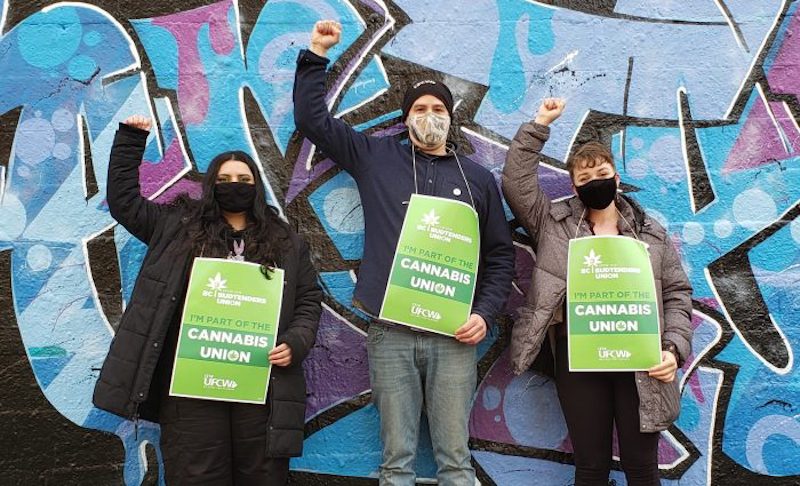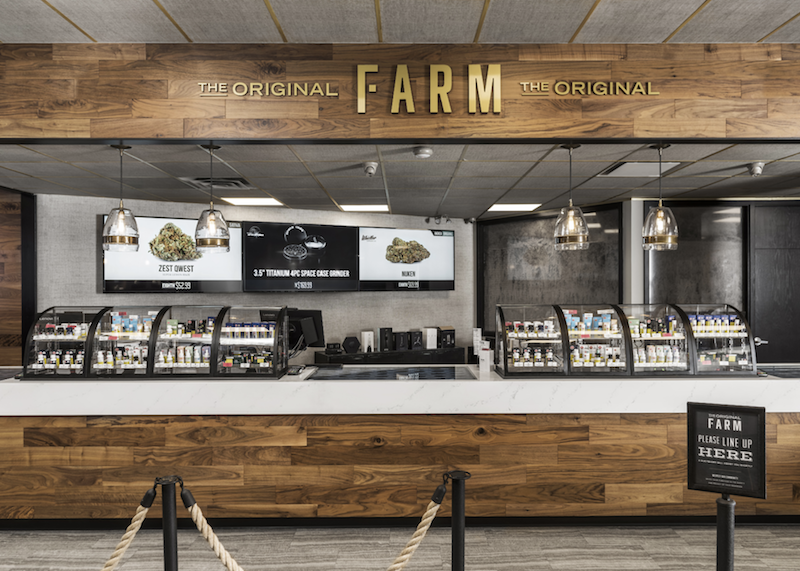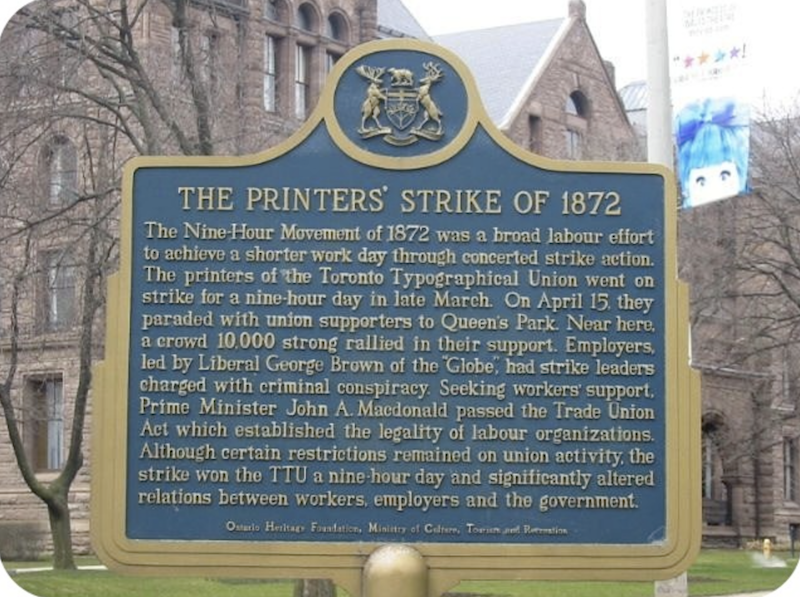Features
BC legal cannabis highly active in labour movement
Published on September 2, 2022 by David Wylie
 Photo: Contributed
Photo: Contributed The legal cannabis industry in BC is a hotbed of labour organization, with dozens of cannabis industry workers in retail and production having unionized already in the province.
In fact, budtenders at a Victoria cannabis store were the first private legal cannabis retail workers in Canada to form a union.
On Feb. 25, 2019, budtenders at Clarity Cannabis in Victoria formed the “BCBUD” division of UFCW 1518. They negotiated their contract through the COVID-19 crisis and were the first private retail store to earn pandemic pay. They ratified their first collective agreement this past February.
It’s also worth noting retail workers at BC Cannabis Stores and distribution workers with the BCLDB are part of the BC Government Employees’ Union.
The legal cannabis industry is said to be reinvigorating the 150-year-old labour movement. It’s no secret that before Canada legalized in 2018, weed workers dealt with rough conditions, including sexual harassment and getting paid with drugs. Not to mention getting arrested.
• RELATED: East Hastings Vancouver Eggs Canna votes to unionize
In March, an Eggs Canna location in Vancouver became the first private cannabis store in the Lower Mainland to unionize when employees in the East Hastings shop voted to join UFCW 1518’s BC Budtenders Union.
UFCW 1518’s secretary-treasurer Patrick Johnson says it’s proof workers can be “the loudest voice in the room” and guide the cannabis industry.
“To put it into perspective, recreational cannabis was only legalized in 2018,” he says. “Fast forward four years and 70% of the for-profit cannabis shops in the capital city have unionized. Today, we’re excited to get behind the Budtenders at Eggs Canna and start to organize around Vancouver. Workers have been at the forefront of this industry from its inception, shapeshifting cannabis to benefit their communities, and their influence is only growing. These folks are unstoppable.”
The union also represents growers at the Potanicals greenhouse in Peachland.
 Photo: Contributed
Photo: Contributed Also earlier this year, 14 cannabis workers at the Original Farm’s Hillside cannabis store location in Victoria joined the union. They followed their coworkers’ lead at the downtown Victoria location; that store unionized in December 2021.
“This is a big win for our members, especially because the Hillside staff had to defeat an anti-union campaign by Original Farm to get here,” Patrick Johnson, UFCW 1518’s Secretary-Treasurer, said at the time.
“Their decision to vote union was even more powerful and necessary.”
UFCW 1518 says its members throughout Victoria are “re-inventing the cannabis industry with innovative and aspirational contract language,” such as employer-paid cannabis sommelier training and tasting discounts.

Labour Day originated in Canada
The first Canadian parade for workers’ rights was held in Toronto on April 15, 1872—five years after Confederation. It was the first significant workers demonstration with an estimated 10,000 people on the street. Unions were illegal at the time.
Paid holidays, safe work places, medical care, unemployment insurance, fair hours, union wages, and “the weekend” are often taken for granted.
“But how many of these advances would have happened if it were not for the long-forgotten heroes who fought so hard to make unions, and Labour Day, a reality in the first place?” says the National Union of Public and General Employees.
The earliest unions represented wood workers, builders, carriage makers and metal workers, as well as an assortment of other trades ranging from bakers to cigar makers.
“One of the prime reasons for organizing the demonstration was to demand the release of 24 leaders of the Toronto Typographical Union (TTU), who had been imprisoned for the ‘crime’ of striking to gain a nine-hour working day,” says the NUPGE on its website.
“It was a defining moment in Canadian labour history, opening the door to the formation of the broader Canadian labour movement over the next decade and sowing the roots of what is now an annual workers’ holiday around the world.”
Leave a comment on our Facebook page.
© Copyright 2022 Okanagan Z. | About the oz.
Report a Typo or Inaccuracy
We strive to avoid typos and inaccuracies. However, on occasion we make mistakes. We value your contributions and help in correcting them.